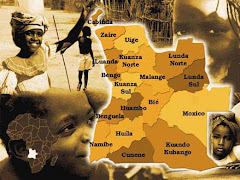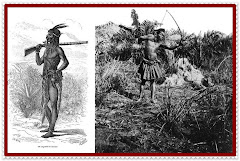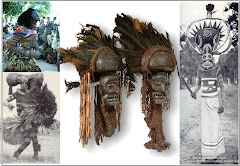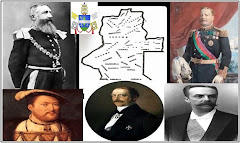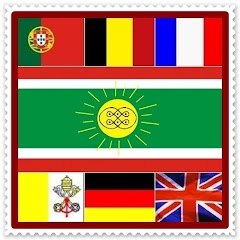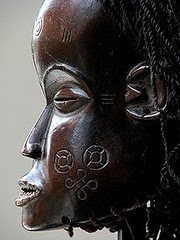
África antes da partilha
The Berlin Conference:
The General Act of Feb. 26, 1885
Chap. I [relating to the Kongo River Basin and adjacent territories]
I. The trade of all nations shall enjoy complete freedom
II. All flags, without distinction of nationality, shall have free access to the whole of the coast-line of the territories . . .
III. Goods of whatever origin, imported into these regions, under whatsoever flag, by sea or river, or overland, shall be subject to no other taxes than such as may be levied as fair compensation for expenditure in the interests of trade . . .
IV. Merchandise imported into these regions shall remain free from import and transit duties [subject to review after 20 years]
V. No power which exercises or shall exercise sovereign rights in the . . regions shall be allowed to grant therein a monopoly or favour of any kind in matters of trade...
VI. All the powers exercising sovereign rights or influence in the aforesaid territories bind themselves to watch over the preservation of the native tribes, and to care for the improvement of the conditions of their moral and material well-being and to help in suppressing slavery, and especially the Slave Trade. They shall, without distinction of creed or nation, protect and favour all religious, scientific, or charitable institutions and undertakings created and organized for the above ends, or which aim at instructing the natives and bringing home to them the blessings of civilization.
Christian missionaries, scientists, and explorers, with their followers, property, and collections, shall likewise be the objects of especial protection.
Freedom of conscience and religious toleration are expressly guaranteed to the natives, no less than to subjects and to foreigners . . .
Chap. II Documents relative to the Slave Trade
IX. ............the Powers which do or shall exercise sovereign rights or influence in the territories forming the .. basin of the Congo declare that these territories may not serve as a market or means of transit for the trade in slaves, of whatever race they may be. Each of the Powers binds itself to employ all the means at its disposal for putting an end to this trade and for punishing those who engage in it.
Chap. IV Act of Navigation for the Kongo
XIII. The navigation of the Kongo, without excepting any of its branches or outlets, is, and shall remain, free for the merchant ships of all nations equally . . . the subjects and flags of all nations shall in all respects be treated on a footing of perfect equality . . . no exclusive privilege of navigation will be conceded to Companies, Corporations, or private persons whatsoever . . .
Chap. V Act of Navigation for the Niger.
XXVI. The navigation of the (River) Niger, without excepting any of its branches and outlets, is and shall remain entirely free for the merchant ships of all nations equally . . .[both Britain and France which had parts of the region of the Niger under protectorate status also undertook to apply the principle of free trade in their territories]
Chap. VI [Regarding new occupations on the coasts of Africa]
XXXIV. Any power which henceforth takes possession of a tract of land on the coasts of the African Continent outside of its present possessions, or which, being hitherto without such possessions, shall acquire them and assume a protectorate. . . shall accompany either act with a notification thereof, addressed to the other Signatory Powers of the present Act, in order to enable them to protest against the same if there exists any grounds for their doing so.
XXXV. The Signatory Powers of the present Act recognize the obligation to insure the establishment of authority in the regions occupied by them on the coasts of the African Continent sufficient to protect existing rights, and, as the case may be, freedom of trade and of transit under the conditions aggreed upon.
XXXVII. The Powers signatory to the present general Act reserve to themselves the right of eventually, by mutual agreement, introducing therein modifications or improvements the utility of which has been shown by experience ......................................
Done at Berlin, the 26th day of February, 1885.
















































